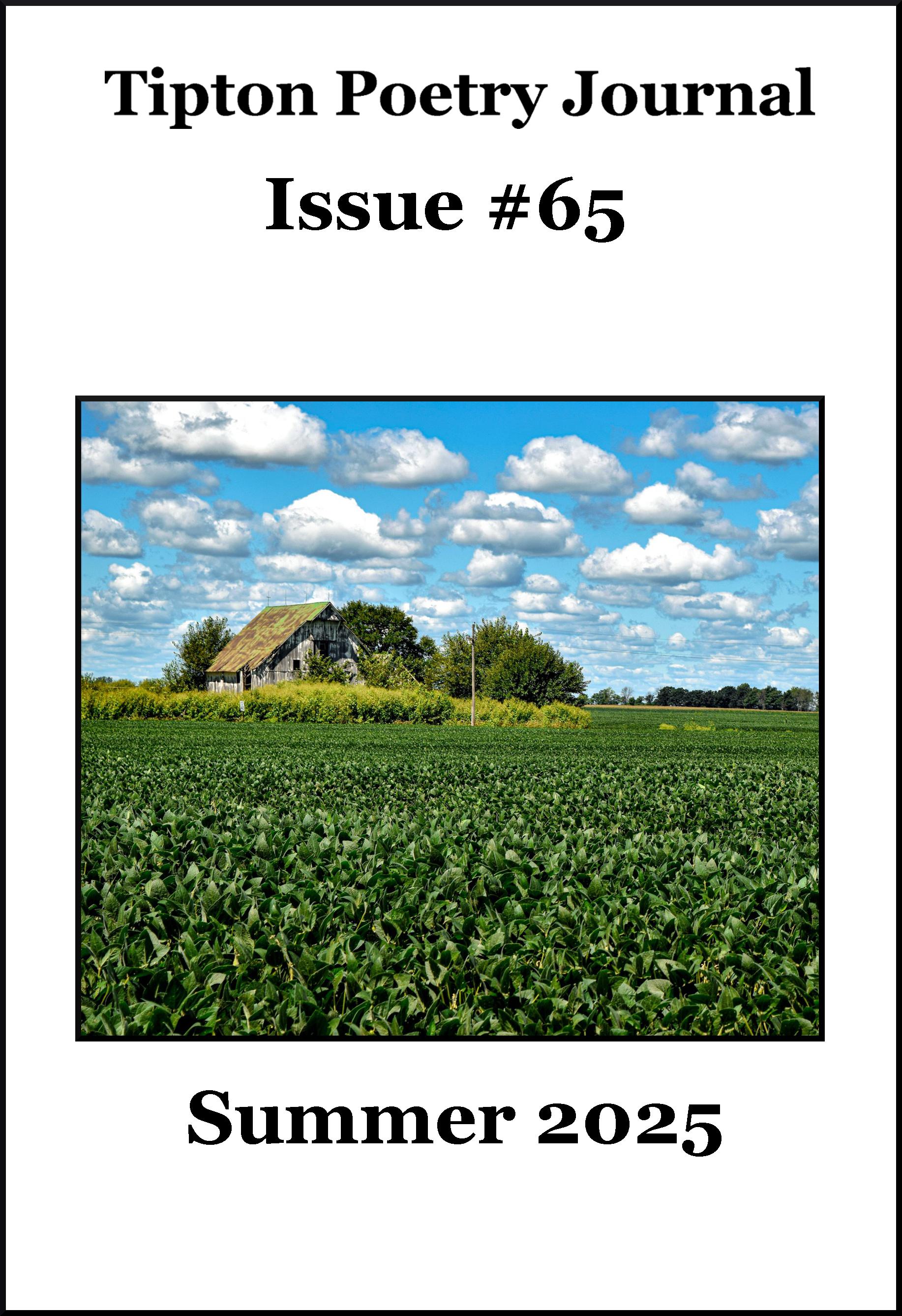

Tipton Poetry Journal Tipton Poetry Journal
Editor’s Note
Tipton Poetry Journal, located in the heartland of the Midwest, publishes quality poetry from Indiana and around the world.
Statistics: This issue features 26 poets from the United States (15 unique states), and 7 poets from China, Italy, Poland, Spain, Sweden Thailand and Ukraine.
Our Featured Poem this issue is “Home is Where the Hurt Is” written by Linda Meg Frith. Frith's poem, which also receives an award of $25, can be found on page 5. The featured poem was chosen by the Board of Directors of Brick Street Poetry, Inc., the Indiana non-profit organization who publishes Tipton Poetry Journal.
Barry Harris reviews Daniel Bourne's Talking Back to the Exterminator.
Cover Photo Indiana Farm by Brendan Crowley
Barry Harris, Editor
Copyright 2025 by the Tipton Poetry Journal.
All rights remain the exclusive property of the individual contributors and may not be used without their permission.
Tipton Poetry Journal is published by Brick Street Poetry Inc., a tax-exempt non-profit organization under IRS Code 501(c)(3). Brick Street Poetry Inc. publishes the Tipton Poetry Journal, hosts the monthly poetry series Poetry on Brick Street and sponsors other poetry-related events.
Circling the Villanelle
JaniceD.Soderling
The deer returns. It comes at night. Not two; one solitary doe, alert, on guard, tripping across packed snow that glistens blue when honest folk sleep snug and deep. And you?
Circling the apple tree in my back yard, the deer returns. It comes at night, at two, under an owlish moon. Tu-whit, tu-whoo!
Last year she had a mate. Her flank is scarred. Tripping across packed snow that glistens blue as thought, she paces round a tree of rue.
And you, my erstwhile love, my goliard?
Those dear return. Reprised in thought, we two who wrought and reckoned rhymes both slant and true. Slowly she circles under a sky ill-starred, tripping across packed snow that glistens blue. Perhaps he pulled that well-known switcheroo, her bawdy mate. In stubborn disregard, the deer returns. It comes at night, at two, tripping across packed snow that glistens blue.
Janice D. Soderling is a dislocated Hoosier who lives in Sweden. She is a previous contributor to Tipton Poetry Journal. Her work appears most recently at Eclectica, Mezzo Cammin, and Light Poetry Magazine. In 2025, Kultivera Production published two new Soderling collections: The Women Come and Go, Talking (poetry) and Our Lives Were Supposed to Be Different (short stories).
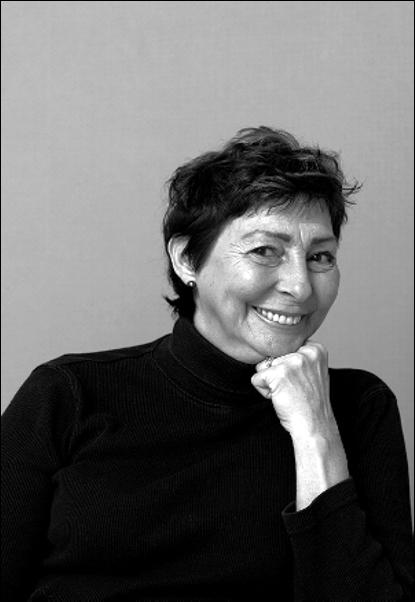
Beauty and the Beast
JimTilley
As I sit here writing, I think about the flowers blooming in my garden, those orange and yellow day lilies sealing themselves away at night, but unfurling like a flag in a morning breeze to welcome the day and remind us, at this time before the celebration of our independence, of the birth of our nation. Then there’s the pinkish petals falling away from the twin dogwoods that flank my front door, and that’s also a sign beautiful things don’t last forever.
I keep thinking about the numbers in yesterday’s news if our 30,000-pound bunker-busters are good for penetrating only 200 feet of rock and concrete and the enrichment facilities lie up to 300 feet underground, then maybe 12 bombs didn’t quite get it done. Perhaps they’ve discovered a way to prolong beauty until it can be made to blossom into a mushroom cloud.
Left/Right
JimTilley
It’s how you have to walk through life these days, one foot in front of the other, arms swinging properly back and forth in a military march, not glancing left or right, a need to stay out of the life-draining left and right politics of the day. If you’re a serious walker of life, you quickly find
there’s not enough life in most socks, no matter the shoes, wearing out too soon as holes emerge in toes and soles. Reason enough to purchase a sturdier pair, like those with markings L and R, but getting it right only a 50/50 proposition many mornings when bleary-eyed and groggy
from a fitful sleep before you awake fully to pilot the vessel through the day’s narrow channel, always keeping port on the left and starboard on the right.
Jim Tilley lives in New York State and has published four fulllength collections of poetry and a novel with Red Hen Press. His short memoir, The Elegant Solution, was published as a Ploughshares Solo. Five of his poems have been nominated for a Pushcart Prize. His most recent poetry collection, Ripples in the Fabric of the Universe: New & Selected Poems, was published in June 2024. His forthcoming collection, When Godot Arrived, will be published in the fall of 2026.

The Swamp
KatherineSimmons
The limbs and leaves of last years’ trees lie as they fell, sunk in cold and stagnant water. Fleshy gray maggots and nematodes slither in and out, weaving between the waving veils of dead foliage that once sunned in pearl-blue sky, but now are done with all that vibrancy. Bloodworms twitch across the dark mire of moldering detritus. Foul smells of sulfur roil up whenever startled deer bolt through, cloven hooves cutting loose swells of stench, which rise like funerary incense. Far away
a fat man sits behind a desk in a government building, many cameras on him. Sycophants, billionaires, and job seekers weave through the corridors. The fat man wields a sharpie pen, as foul odors of sulfur waft through. He moves his hands in and out, pouts and gripes, pretends he does not know the truth: one day he will die and rot, and soft gray worms at last will turn him into dirt.
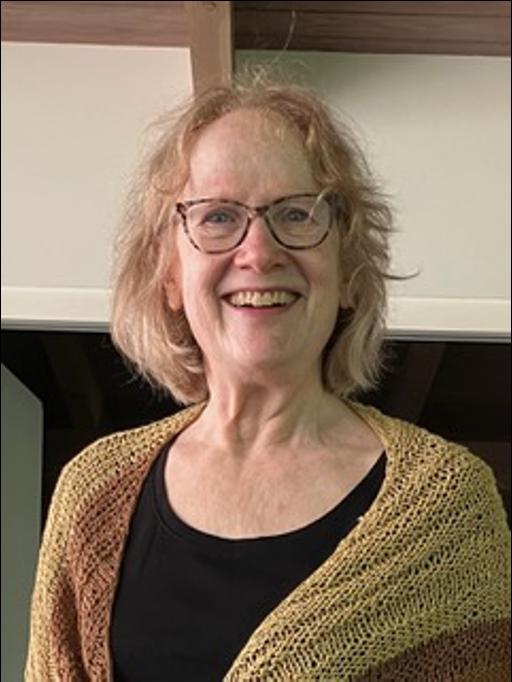
A native of Indiana, Katherine Simmons retired from the practice of law in New York and returned to the Hoosier state to live near the land and people she loved as a child. She now enjoys a variety of interests including poetry, nature, wild yeast bread-making, and the study of German. Katherine‘s poetry has been published inWayWords Literary Journal, Bud & Branch, Pure Slush – Lifespan Series, Still Points Arts Quarterly, Plum Tree Tavern, the Anglican Theological Review, Mayfly, And the Tail Wagged On, Me As a Child, Dis-Ordered, Flying Island, Through the Sycamores, As Above So Below, and Wine Cellar Press.
Home is Where the Hurt is
LindaMegFrith
I’ve been thinking of home for days and coming up blank Is there nothing there to remember not the picture window in the room that used to be a garage or the hamsters and cages in the carriage house, my father’s failed attempt at entrepreneurship.
What about the Friday night dinners hamburgers and pan fries, there was never enough Ketchup or pickles.
What other mother didn’t buy ketchup?
Chiefly, I remember dinners food was the only comfort I knew I remember music, Mostly Elvis and Johnny Cash but there was the hit parade. The one thing mother and I had in common as a rule, we were polar opposites.
She was always counting stitches I was collecting neglect.
Linda Meg Frith is a retired Social Worker and long-time member of Green River Writers. She has published poetry in River and South, eMerge, Rainy Weather Days, Amethyst Review, Eclectica Magazine and other literary journals. Linda Meg currently lives with her Chihuahua, Jasmine, in Louisville, Kentucky.
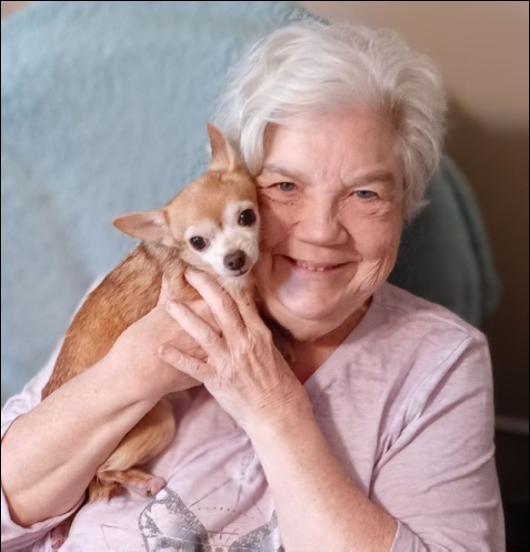
Pinecones and Pineal Glands
HeathBrougher
If your personal Spiral comes to an end within your head, you deserve to wear the ubiquitous noose that adorns the crowds of thoughtless masses, as you have made it clear you are using your Spiral backwards in order to brainwash others into joining the herd the coma of the populace!
You are already as dead as the bricks you live within and then you remember the non-logarithmic as well and you recall duality and you simply exist, here and not here.
Heath Brougher lives in Pennsylvania and is the editor-in-chief of Concrete Mist Press and former poetry editor for Into the Void Magazine. His work has appeared in Main Street Rag, eFiction India, Poetry Pacific, Tipton Poetry Journal, Fredericksburg Literary and Arts Review, Red Fez, and elsewhere. He is a multiple Pushcart Prize and Best of the Net Nominee as well as recipient of Taj Mahal Review's 2018 Poet of the Year Award. His most recent book of poems, Beware the Bourgeois Doomsday Fantasy was published by Sandy Press in 2024.
At The Ocean
AnneWhitehouse
A soft breeze blows through my baggy clothes, awakening my skin like a lover. Every leaf and blade of grass is in motion, every nodding wildflower beckons me to the cove, where the sea washes over the rocks, and the wet sand is printed with the tracks of waterbirds.
The tide is coming in, and I am almost too late to swim out to the rock I have always swum to carpeted with soft seaweeds, purple and green, that I hold onto like Rapunzel’s hair, and climb until I stand up free in the air as the day I was born.
Soon the rock will be buried in the dark sea. But I find my balance, grip the seaweeds with my toes, while the cold water washes over my ankles and splashes my shins.
Anne Whitehouse lives in New York City and is the author of poetry collections: The Surveyor’s Hand, Blessings and Curses, The Refrain, Meteor Shower, Outside from the Inside, and Steady, as well as the art chapbooks, Surrealist Muse (about Leonora Carrington), Escaping Lee Miller, Frida, and Being Ruth Asawa. Her latest chapbook, Adrienne Fidelin Restored , was published this year. She is the author of a novel, Fall Love. Her poem, “Lady Bird,” won the Nathan Perry DAR 2023 “Honoring American History” poetry contest. She has lectured about Longfellow and Poe at the Wadsworth Longfellow House in Portland, Maine, and Longfellow House Washington Headquarters in Cambridge, Massachusetts.

MonaMehas
He said my face glowed brilliant as the sun and declared his adoration for me.
I told him he was strong and solid, like the earth herself as he latched the beaded bracelet round my wrist. The sky was too dark for an April afternoon, a moon shadow from the eclipse over Indiana.
The sun abandons the earth during a solar eclipse.
Glasses in hand, apprehension crept into my shoulders, viewing an eclipse was no small feat. The moon, like the man, obscured those around it; I no longer wished to live in the dark. Even with proper protection, an eclipse could be dangerous. I’d gazed at him so long my vision was corrupted. A cloud of fear sent shivers to my spine as the moon closed the gap a smirk on his face, proud to eclipse the event he approached, a tiny, velvet box in his fingers.
The sun abandons the earth during a solar eclipse.
There we stood in Indiana on the path of the solar eclipse twenty years before the next one, our glasses in place. He asked for my hand, but fear of entanglement made my choice: watch the diamond ring form around the heavenly bodies above or accept what the man offered in the beguiling box. When the sky grew light again, I drove home alone.
The sun abandons the earth during a solar eclipse.
Mona Mehas (she/her) writes from the perspective of a retired disabled teacher in Indiana USA. She grew up poor and is unafraid to put her heart on the line. Nominated for a Pushcart (Paddler Press 2023) and Best New Poet (Lucky Jefferson 2024,) Mona’s work has appeared in multiple publications and online museums. She helps edit a small press, works with an online Star Trek magazine, and is Indiana Co-Leader for Authors Against Book Bans. Her latest book is the poetry collection, Breathing Through My Spine (Poptab Press, 2025.) Mona is editing her second novel and is perpetually distracted by her next chapbook.
Stanley is a Bird KenBeen
Stanley is a bird, migratory. Time is within him he knows when to go–it is always after the refrigerator in the teacher's lounge is unplugged for summer and the long corridors are stripped of floor wax, reflections scraped off until Labor Day.
Things look smaller than last season when the birch trees had bark and he wasn’t diagnosed and the pebbles weren't rusty on the flat rooftop of the school. He hears his parents and sister push their heads up through the soil.
I wait in the car at the gates munching sunflower seeds. He is radiated when he returns and drops me off at the intersection, something in him saying I'll be sure to catch on here.
Ken Been’s writing has been published or is forthcoming in numerous journals internationally. Recent placements include The Brussels Review, The Primer, LIT Magazine, Slab, Kelp Journal (The Wave), The Opiate, Nova Literary-Arts Magazine and Aethlon. He has contributed to anthologies including Remembering Lawrence Ferlinghetti and Remembering Gerald Stern. He is from Detroit.
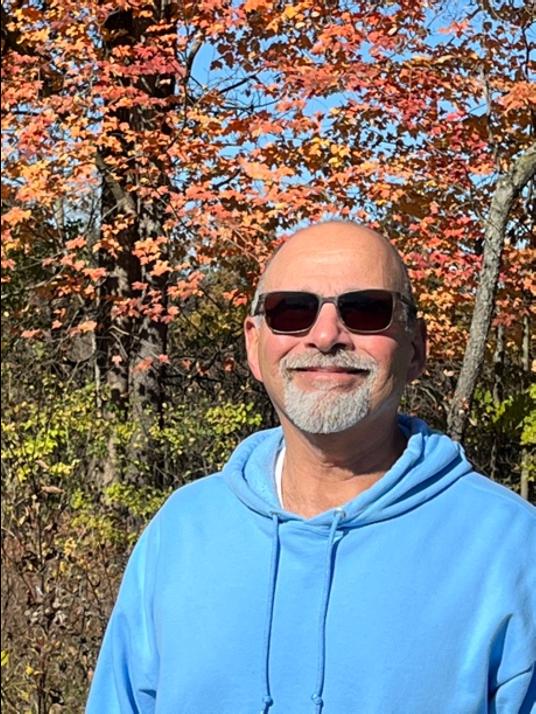
Empathy, not detected
GailEpps
The tin man didn’t have a heart but he knew he needed one that poor contraption’s journey was a noble run.
Not so easy for real flesh and blood against the grinding gears of soulless greed something’s different, nothing’s changed just more deranged indifference to a planet in need.
Bundle up against the cold wind of indifference a change in climate goes both ways that hawk is no stranger, it chills to the bone anything can happen in a matter of days.
Babies don’t throw themselves out of windows townsfolk don’t throw poison in their own damn lake kids would never fight if they understood that each of them was right and the animosity was fake.
There’s money to be maintained making myth dropping lies, like the insinuation that there always was another side gunning for another fight.
So hard to see it in the eyes of a child who gets it something’s off in their cruel little world where there’s no empathy expected.
Namaste Woke
GailEpps
Instead of crying about an abstract adjective that hasn’t meant what it means in years, try a little empathy like tasting someone else’s salty tears.
I know every kid can’t be like that little girl with her flotilla of philanthropy trying to do some good in the world, but do folks have to be so mean? Compassion isn’t rocket science, humans come programmed to feel, to nurture and know visceral shame when ego is to blame.
It should be easy to choose love over mayhem and trauma, wakey wakey woke not in a coma or part of the negative drama.
Gail Epps sees poetry as a technical language between souls and another way to tell a story. Within a creative life that included careers as a chef, a headhunter and a rock singer; poetry is a natural toolkit for making images and plans for a kinder world. Gail lives in North Carolina. Her poetry is published in The Journal of Expressive Writing, Crosswalking, the annual Havik literary journal and upcoming editions of eMerge magazine, Amplify, a Sheila Na Gig anthology and the Journal of Undiscovered Poets.
The Wait
KenPoyner
They park the hearse In the two-hour limit Parking lane, just beyond The street’s sole fire hydrant. A man in a black suit Leans against the front fender, Arms folded, his black shoes So shiny they must hurt.
I draw in as many details as I can. The man makes eye contact with me But makes no other acknowledgement. I sit on the common front porch In my wheelchair, beneath a blanket Wanting to know everything there is To know about this long last breath, The sequences it will engender.
I want to make the driver wait So long a reluctant parking monitor Writes him a ticket, which then makes him Remember me years longer than proper, Places a guilt to be denied In the young, efficient parking monitor, A woman sure she is never going to die.
I expect she will be pretty, but between husbands.
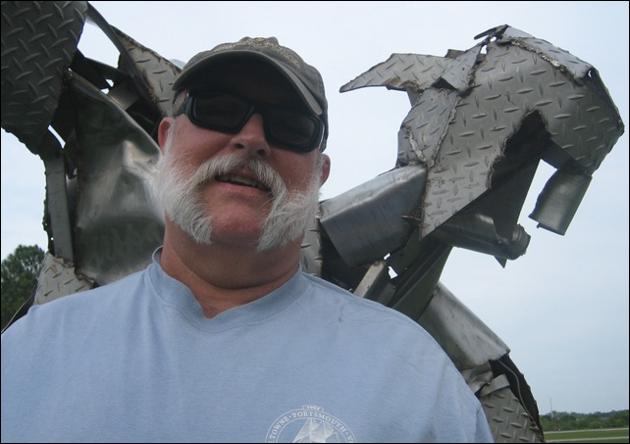
Ken Poyner lives in Norfolk, Virginia. This year he has published several pieces of microfiction and between twenty and thirty poems, three of which have been nominated for a Pushcart Prize.
How light filters through pine needles
YuliiaVereta
It isn't the sun but the way it forgets itself through the needles.
A thin gold sieve, poured slow through the hush of a late July stand. You're twelve, Maybe younger. There is sap on your fingers and silence in your throat, sweet as it is heavy.
This is how memory moves: not as a flood, but in shards a flicker across your mother's sleeve, the slant of her wrist as she breaks a green branch to check its scent.
She says something. You don't hear it only watch the air shift, the dust catch, and scatter.
Later, you will remember her voice as part of the light. Not the words, but their weightlessness how they bent with the pine tips, how they never touched the ground.
Ukraina. Kordyshivka. Chernozem
YuliiaVereta
I was not raised by the ocean no lull of salt breath, no gull-stitched sky. Not by mountains either— no pine hush, no thunder in the ribs of stone.
I was raised where earth darkens under your nails, where potatoes sleep in tar-black beds, where the wind smells like iron and river rot, and a field is the only cathedral you’ll ever need.
We did not speak to the land in metaphors we cupped it with blistered palms, fed it the ache in our knees and called that prayer.
Each spring, the thawed earth opened not gently, but like a wound remembering how much it had given.
We bent low into its breath, fingers seeking the warm ribs of buried things, worms twisting like thoughts, the skin of the world peeled back to reveal how alive stillness can be.
The soil holds on to footprints a little longer than it needs to, not out of stubbornness, but tenderness. It forgives the weight by feeding it makes bloom from pressure.
It remembers who walked here soft soles and heavy heels, the quick, the burdened. Every step pressed into its dark ledger, then rewritten in clover and wheat. This is how it forgives: with feeding.
There is grace here. In the plain truth of dirt, in the quiet law of sprouting, in the shadow of a shovel leaning like a hymn against a shed door.
Don’t tell me beauty is only in wave or wing. Don’t name the sublime without naming a freshly turned row, a soft rain on the tin roof, a woman wiping her hands on her apron after pulling a dinner from the ground.
Even the black soil, even the clods beneath your boots they shine if you know how to look.
Yuliia Vereta lives in Poland and has published in multiple Polish and American venues.
Artificial
SarahElenaSmartVargas
Write a poem in my voice about how it feels to be lonely. Compose an upbeat song about falling in love. Scan “Pride and Prejudice” and summarize it in one page. Create a digital painting of my childhood home.
Write me a screenplay about the day my dog died. Here’s a prompt, draft me a three-page paper. This is a photo of my grandmother, write her a eulogy. Write a text telling my boyfriend I’m leaving him.
I’m feeling depressed, pretend to be my therapist. Make a deepfake photo of my ex-girlfriend naked. Clone my English teacher’s voice and make him say a slur. Generate a fake article about rampant voter fraud.
Consume everything created without asking permission. Imbed yourself in every corner of the internet. Give me an excuse to not write this poem myself. Why would I need to? I can just use AI.
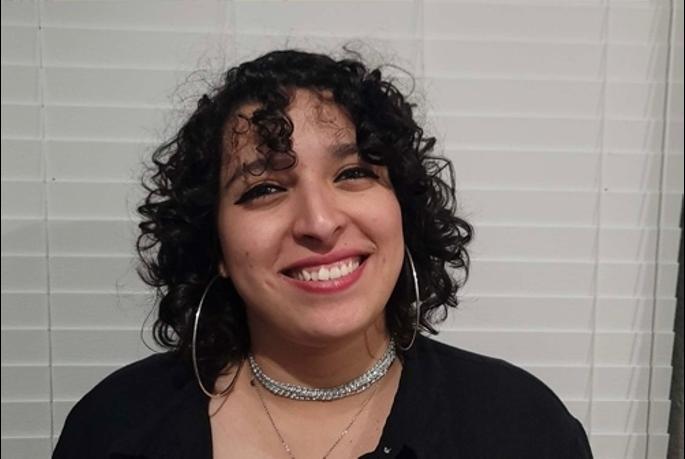
Sarah Elena Smart Vargas is an English major with a focus on creative writing at Southern New Hampshire University. She currently works with middle school ESL (English as a Second Language) students in a small town outside San Antonio, Texas. She lives with her fiancé and her dog .
Everything’s a Moon Poem
ChristopherStolle
Everything’s a blur a pulsating smudge as the lights shut down a darkness trimmed with stars and the howling moon quiets.
Everything’s a mystery an obscure conundrum as the detectives waltz away an enigmatic parade and the twisted moon unfurls.
Everything’s a memory a reliant facsimile as the brain waves increase a seismic shift in perspective and the emotional moon cries.
Everything’s a mask an expressionless facade as the princess escapes an unmitigated disaster and the sleepy moon awakens.
Everything’s a regret a forged apology as the voice becomes foreign a feverish sound of pain and the delirious moon recovers.
Christopher Stolle has been published by Indiana University Press, Cincinnati Symphony Orchestra, Coaches Choice, Tipton Poetry Journal, Flying Island, Last Stanza Poetry Journal, The Alembic, Sheepshead Review, and Plath Poetry Project, among others. He lives in Richmond, Indiana.
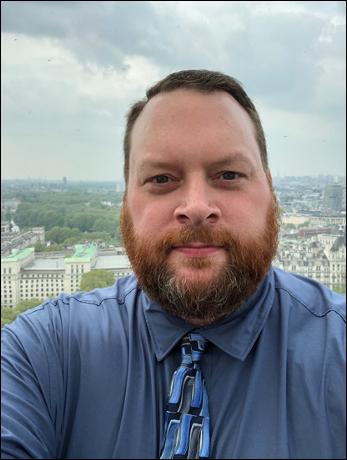
Virginia
WilliamHeath
Raleigh named the new land Virginia for the queen he had failed to seduce, sublimating a generation’s lust into the sweet embrace of a yielding continent whose rivers offered easy access. As the queen was barren, so the newly found land would be fertile beyond dreams for those heroic enough to have her.
Rivers were wombs, voluptuous waters where Virginia lost her maidenhood to greedy men seeking gold and passage to the Orient. The wanton land’s secret name was Pocahontas, her promiscuous queen, cavorting with the ship’s crew to catch the desirous eye of John Rolfe, who swore he married her to save her soul.

William Heath has published four poetry books: The Walking Man, Steel Valley Elegy, Going Places, and Alms for Oblivion; three chapbooks: Night Moves in Ohio, Leaving Seville, and Inventing the Americas; three novels: The Children Bob Moses Led (winner of the Hackney Award), Devil Dancer, and Blacksnake's Path; a work of history, William Wells and the Struggle for the Old Northwest (winner of two Spur Awards and the Oliver Hazard Perry Award); and a collection of interviews, Conversations with Robert Stone. He received a Lifetime Achievement Award from Hiram College. He lives in Annapolis, Maryland. visit: www.williamheathbooks.com
Gerascophobia
BrennaSobecki
Devastation isn’t the being alone. It’s the moment leading up to loneliness.
It starts with forgetting both you and them forgetting the memories, the doctor’s appointments, the birthdays, time moves you to a new chapter you move on to a new state, surrounded by the shine of fine wine and spinning doors
they stay in the same home with the same moment with the moments you left them stuck in time and the updated obituary page
hair alters or disappears completely hands shake and wrinkle coughs linger longer than an unwanted bill the twinkle, like a little spark of excitement once seen in the corner of their eye dwindles to nothing but a dot on a page.
Brenna Sobecki is a current undergraduate student at Indiana State University who is pursuing an English major (Creative Writing concentration) with a minor in Language Studies (Spanish) and Teaching English as a Second Language. As a Northwest Hoosier native, Brenna enjoys hiking and spending free time at the Indiana Dunes.
One Last Morning
CecilMorris
He feels it now, his death coming, a crow silent in Sitka spruce behind the house the one already old when the house was built forty years ago, its long limbs swaying down, pantomime of exhausted resignation, of foreknowledge of how life goes and crows. The morning opens a blue sky above the spruce, the smaller fir and alders, and waits like a breath held, like a memory of playing marbles on the black top at Crestmont Elementary. The relentless sound of waves comes up the hill, rises above the trees, and waits like the teacher’s long whistle blast closing the door on recess, like his mother staring down at him when he told her lies. He feels it now, the binge of days he had gobbled, a bloating bolus, passing through him, leaving like his wife, a hollowness growing, an echo. Scent of sea and spruce blooms in the air and waits for him like anemones palest green and sea stars violet with their wet patience in tide pools, like the chocolate chip cookies still warm from his mom’s oven or white orange blossoms of April. Salt moves over his lip and kisses his tongue and deeper in his mouth the ecstasy of chocolate melting.
my baby, ode #5
CecilMorris
oh baby, my baby she hot, hot, hot she pure capsaicin clear off the scoville scale she ghost pepper cross-bred with carolina reaper a kind of heat unknown to modern eye or tongue and too much for policeman’s pepper spray my baby she put the red in lipstick and polish and red-hot cinnamon hearts that stain from fingertips to lips to tongue to heart she red dye number 1 million she indelible she the fire engine and its siren sound my baby the flame smoke flees she vaporizes paper, eats up wood, bends steel she melts metals and makes them merge my baby will temper you, will harden you, she will change you from what you are to something shiny bright and sharp-edged she the oxy-acetylene torch fusing heart’s sinews into a cathedral of pipes and chimes she fiery as dragon breath the smoldering fever in a thousand sultry songs she the hiss and sizzle on the metal plate the waiter carries with doubled hot pads she lawsuit coffee scalding your lap she the scorch on asphalt gone soft under blazing sun on august afternoon she the very surface of the sun my baby, by god, she hot, hot, hot
Cecil Morris is a retired high school English teacher living in California, sometime photographer, and casual walker. His first collection of poems, At Work in the Garden of Possibilities, came out from Main Street Rag in 2025. He has poems in The 2River View, Common Ground Review, Hole in the Head Review, New Verse News, Rust + Moth, The Sugar House Review, and elsewhere.
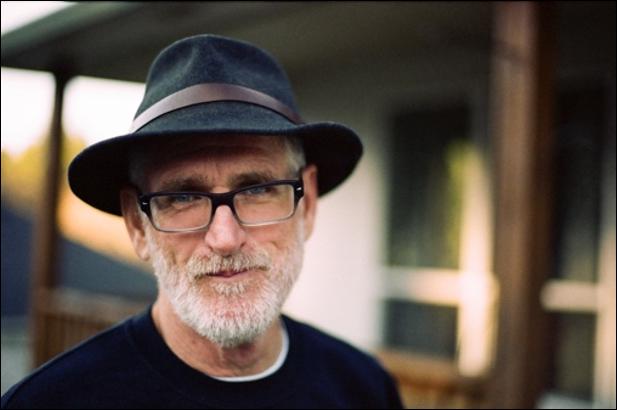
A Sunday in Spring
JeanineStevens
I’m looking for a new church with fewer announcements, shorter sermons, more music, better coffee.
One close by I hadn’t noticed, architecture all steeple. I drive down streets, Marconi and Nottingham, past lawns sprouting pink plastic flamingoes. I’m early. In the parking lot, a yard sale benefiting missions in Africa. A man I think I know checks out racks of clothing, says he needs a Santa suit. I don’t see any bargains. It starts to rain.
I rush over to buy a child –size umbrella, red and purple, a ruby jewel on the handle. Then, the organ booming: “A Mighty Fortress.”
I forgot to polish my shoes.

Jeanine Stevens’ latest publications are Left Handed Hummingbird (Clare Songbirds Publishing, 2025) and Tea in the Nuns’ Library (Eyewear Publishing, UK.) Work has appeared in Chiron Review, Evansville Review, Rosebud, So it Goes: Journal of the Kurt Vonnegut Memorial Library, and Two Thirds North (Sweden). Jeanine is Professor Emerita at American River College in Sacramento, California.
Dreaming
MichelleHartman
It’s a different show every night you keep the veil thin what slips through slips through Pretty cover lift the top pour in what you like Déjà vu images of us as gods in alternate universe or mowing a yard suburban happy As I roll over sweaty sheets breath thundering I realize if we did meet familiarity would birth ennui My pen drips ardor and fury the Milky Way and Andromeda galaxies collide in 4.5 billion years Appearing to be us meeting in a physics failure You be Death and I’ll be War The beast we make becomes a poem forcing poets to retire from envy a symphony, heard over the Big Bang
Michelle Hartman is the author of four poetry books, four chapbooks, the most recent a winner of the John and Miriam Morris Memorial Chapbook Contest. Her work has appeared in Crannog, Galway Review, Tipton Poetry Journal, The Atlanta Review, Penumbra, Poem, Southwestern American Review, Carve and many more. She is the former editor of Red River Review, as well as the owner of Hungry Buzzard Press. She lives in Texas.
Madre
JuanRamónJiménez
Te digo, al llegar, madre, que tu eres como el mar; que aunque las olas de tus anos se cambien y te muden, siempre es igual tu sitio al paso di me alma. No es preciso medida Ni calculo para el senalamiento de ese cielo total; el color, hora unica, la luz de tu poniente, te senalan oh madre! entre las olas, conocida y eterna en su mudanza.
Juan Ramón Jiménez (23 December 1881 – 29 May 1958) was a Spanish poet, a prolific writer who received the Nobel Prize in Literature in 1956 for his lyrical poetry, which in the Spanish language is exemplary of the precision of the image and a deep lyrical quality. One of Jiménez's most important contributions to modern poetry was his advocacy of the concept of "pure poetry." His poems often address divinity.
24
Mother
JuanRamonJimenez translatedbyWallySwist
I tell you when I arrive, mother, that you are like the sea; that although the waves of your years are changed and moved you, your place is always the same at the pace of my soul. No measurement is necessary nor calculation for knowledge of that sky of your soul; the color, eternal hour, the light of your sunset, they point out to you, oh mother, between the waves, known and eternal in your movements.

Translator Wally Swist’s forthcoming books include If You’re the Dreamer, I’m theDream: Selected Translations from Rilke’s Book of Hours (Finishing Line Press) and Aperture (Kelsay Books), poems regarding caregiving his wife through Alzheimer’s. Recent essays, poems, and translations have or will appear in Amethyst Review: New Writing Engaging with the Sacred, Chicago Quarterly Review, Commonweal, Full Bleed, Healing Muse, Illuminations, La Piccioletta Barca (U.K.), Pensive: Journal of Global Spirituality, Presence, and Your ImpossibleVoice. His book Huang Po and the Dimensions of Love (Southern Illinois University Press, 2012) was selected by Yusef Komunyakaa for the 2011 Crab Orchard Open Poetry Competition. He lives in Massachusetts.
Temperamental
AlessioZanelli
I’ve often heard it said you feel clean swell, but then when I see you tucked away in that grumpy mood of yours, just digging in your heels not to snap out of it, I can but think every time you see me all goes sideways in short order, as if none but myself were the real killjoy, always popping around to take the shine off you.

Alessio Zanelli is an Italian poet who writes in English. His work has appeared in about 250 literary journals from 20 countries. His sixth collection, titled The Invisible, was published in 2024 by Greenwich Exchange (London). For more information please visit www.alessiozanelli.it
The twilight violets in the garden, The paper moons of orange and dream-lit yellow A black heart in the middle A black heart in the middle
The pale white sun sinking
In a bed of light-abandoned rose bush And arms of leaves
Failing to hold the frame.
A table of water of firs
Abundantly losing that Which brings vision Of the whole architecture:
That light that our eyes make out The wind our skin makes out. The wind that blows incessantly
To the concentrated point Of contemplation
Over the shore. It fingers through
The old crap of memories
Unfit for the universe
To trickle down a tear glassy
Red as the the sunset on the ocean
We once saw riding your motorcycle. Our faces luminous with ignorance Of the next spring’s joy
Monstrous, lugubrious, Stabbing us to death.
Xiao Wenyi is a bilingual poet and yoga instructor. She is currently a graduate student in English Literature at Beijing Foreign Studies University. Her areas of interest are modernist poetry and 20th century women poetry.
Fireflies
DavidTobin
Take my hand into the darkness, where we can be at ease, like the trees around us, who, without moving or talking, or thinking, can delight the birds, can paint colors on a canvass, can give us the air that we breathe, like you and me, grounded in nature, the absolute joy of your hand in mine, following a pathway into the wood, tiny stars flashing above the wild grass, who wake us up to the light of love, where we can stop moving, talking or thinking and be who we are, just two pilgrims on a journey, neither beginning nor ending, just now, just you and me, just two more stars, flashing above the wild grass
David Tobin lives in the Indianapolis area, is relatively new to poetry and enjoys writing about nature and merging the theme of nature with themes of life and love.
MykytaRyzhykh
I want to be a killer sleeping on crumpled grass I want to be buried in crumpled grass
I want to kill I want to be
Buried under the grass is a home for worms and insects The buried has no room for error
I want to kill the war I want to be home
[This poem was first published in The Gravity of the thing]
Mykyta Ryzhykh lives in Ukraine, has been nominated for the Pushcart Prize and has been published any times in the journals Dzvin, Dnipro, Bukovinian magazine, Polutona, Rechport, Topos, Articulation, Formaslov, Literature Factory, Literary Chernihiv, Tipton Poetry Journal, Stone Poetry Journal, Divot journal, dyst journal, Superpresent Magazine, Allegro Poetry Magazine, Alternate Route, Better Than Starbucks Poetry & Fiction Journal, Littoral Press, Book of Matches, on the portals Litсenter, Ice Floe Press and Soloneba, in the Ukrainian literary newspaper.
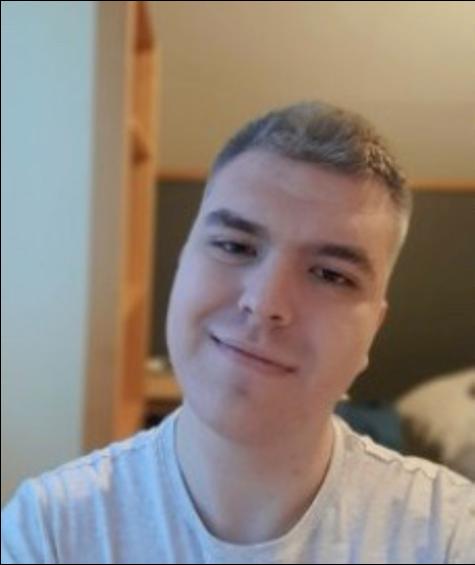
GeorgeFreek
As they spin in the wheels of a clockwork machine, the stars light the way into an emptiness, we call infinity. When monks meditate on such things, do they see beyond the commonplace? When they look at the moon do they see more than a monument of stone to something unknown? I have no connection to any kind of deity. My life is as ordinary as afternoon tea. That is my ordinary destiny, and it never lets me be.
A Meaningless Disturbance
GeorgeFreek
As trees lose their leaves without regret, the shadow of an elm rolls down the street like water down a hill, as if it had a will, but I think it’s simply time’s way of collecting its debts, as trees await a new season, without thought or reason. I sometimes feel a fluttering in my chest, like a trapped dove, with no way of escaping. When I sleep, it attempts to fly away, but then loses its way in the cosmos, where nights are black, and are often mistaken for another new day.
George Freek is a poet/playwright living in Belvidere, Illionois. George Freek's poetry appears in numerous journals and reviews. His poem "Night Thoughts" was recently nominated for a Pushcart Prize. His poem "Enigmatic Variations" was also recently nominated for Best of the Net. His collection Melancholia is published by Red Wolf Editions. George Freek also published plays. His plays are published by Playscripts and Off The Wall Plays.
Allusion
EzzatAbouleish
Love is a Rembrandt, and his hand risen from this darkness exacts light upon the canvas. There is a gray meadow in the canvas. When read aloud, the canvas does not fail.
Love is this Rembrandt: You are all my meadows. When I think of death, I think of you and a square of warm air cut from the meadow, cut from our days, and
death will exact itself upon the meadow and Rembrandt’s hand is a word pointing beyond itself, and all allusions point beyond themselves to the meadow which is and is good.
On Writing Poems
EzzatAbouleish
She used to make tables of exceptional seeing. Then she was rearranged.
People still sit at the tables. And watch: the dawn is long is exceptional seeing.
I sometimes sit at the tables, resounding in her craft of wood. Her shaping the affects of small destruction like all shapings.
She was rearranged with a disease with no known cause.
The dawn is like running among floating bright tables.
Marx is dead.
Hold on.
Ezzat Abouleish is a recent graduate from Yale College where he studied philosophy and political theory. He served as a poetry reader for the Yale Review and an editor for the Yale Philosophy Review. This is his first publication. The poem was developed under the mentorship of Louis Glück during her final workshop. He lives in Houston, Texas.
Deadline
JeffBernstein
When it came her turn, a quiet woman in our workshop began her reading with I am going to submit my manuscript for publication. But, we all said, as gently as possible, it doesn't seem quite ready, some edits perhaps? I’m 80 years old, she responded. I haven't got that kind of time.
Stacey and I signed new wills yesterday in a law office down-valley. Decades ago, after they’d arranged for plots at a tiny Jewish cemetery tucked between affordable housing and a university, my parents told us we wanted to spare you kids having to deal with that. Then they’d gone out for a nice lunch.
Stacey told our lawyer where she’d live if I wasn’t around anymore an assisted living complex in Hanover. And you? the lawyer asked me. I’ll build a house next door to my daughter and her husband on the back lot up in Waterbury.
Afterwards, we stopped for coffee at a Starbucks, a chain we seldom visit. The Frappuccinos were cold and sweet.
When my son was little, he used to say he’d buy our next-door neighbor’s house when he grew up, live there so he could see us every day.
Imagine 25 years from now. Yes, you have to. Trace forward the course of arthritic limbs, diseases too, new ones or recurrences. This assumes, of course, we are still vertical. The progression of gray, only a few dark spots in my beard left for the snow to cover.
A lifelong New Englander, Jeff Bernstein would most have liked to have been, like Thoreau, “an inspector of snow-storms and rainstorms… [a] surveyor, if not of highways, then of forest paths and all across-lot routes.” He is the author of two chapbooks and two full-length collections; his most recent, The Ancient Ways, was published in 2024 by Aldrich Press and was nominated for the Vermont Book Award. His poem “A 21st Century Tanglewood Tale appeared in the 2025 Cold Lake Anthology. Other poems have recently appeared in, among other publications, Abandoned Mine, the MacGuffin, Nixes Mate Review, Trestle Ties and Sleet.
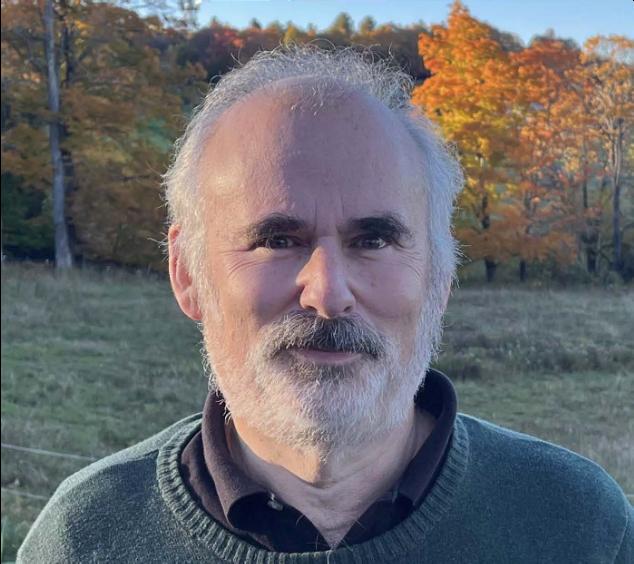
The Diver
TimothyRobbins
How was it possible? Was he to blame or credit for the suspension of natural law that he embodied? That he was a low flame as he walked the straight line to the edge of the platform was clear to everyone. That He was fire not a lit torch, but free fire from the instant he was in the air — this too was clear. How then was there no hiss when his fingers led the wet way for the rest of his body? How did he keep burning long after pulling himself from the pool and springing toward a towel? Later he might zigzag, might slip, might open his forehead on the platform’s hard lip. Still, it would always be true that for one fall he was un-dousable . Timothy Robbins is from Indiana. He has a B.A. in French and an M.A. in applied linguistics from Indiana University and has been teaching English as a second language since 1991. He has been publishing poetry since 1980. He has a longstanding relationship with Hanging Loose and has published seven collections of poetry, the most recent being Florida and Other Waters and Sticks. He and his husband have been together since 1998. They live in Wisconsin.
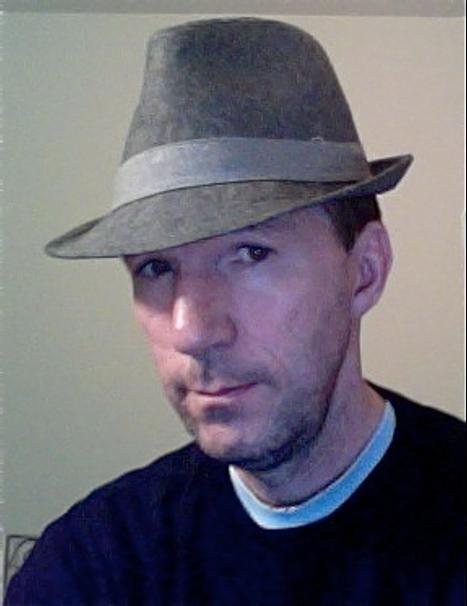
stranded
AnnetteGagliardi
the heavy sack of time spliced against my spine
with such confinement of spirit malnourished and left without
belief in the profound held captive inside another creature’s skin
wearing sin I didn’t ask for words small and shapeless in my mouth this
harvested unborn child still stunned to be alive
Annette Gagliardi is aMinnesota poet whose work has appeared in literary journals in Canada, England and the US. Her first full-length poetry collection, A Short Supply of Viability, and her first historical fiction, titled: Ponderosa Pines: Days of the Deadwood Forest Fire were published in 2022. Her most recent chapbook, Caffeinated was published by The Island of Wak-Wak. See her author website: https://Annette-gagliardi.com
Unhoused Man With Banjo
MichaelJones
Ancestral griots, I tell you: he loves your lute’s descendant. See how spotless he’s kept it, in contrast to his clothes; how, as arpeggios crackle from his pale fingers, his rheumy blue eyes remain half closed.
Michael Jones has taught in Oakland, California public schools since 1990. His poetry has appeared widely in journals, Atlanta Review, Beloit Poetry Journal, Confrontation, DMQ Review, etc., and in a chapbook, Moved (Kattywompus, 2016).
An Apparition
RichardL.Matta
Nothing has changed, I tell her. Grandma agrees. Luminous tendrils of vanilla-scented words drift from her headstone. She wants me to retire from this satellite life fixed in a low earth orbit, waiting for signals, checking in with a ground station, adjusted by experts in this and that. Come blazing down, as if a repurposing remains inside me. I’m not boring you, am I, she says. That tender stone who sees hope beyond accepting life as a project in a tiny living space. What I see is nothing forever one way, or the scorching heat of failure and spattered pride the other way. I reach out for the thinner than time silk of her, but there’s only wick and spent candle.
Richard L. Matta's poetry has appeared in MacQueen’s Quinterly, Stirring, Gyroscope, ONE ART, Watershed Review, international haiku journals, and elsewhere. He was recently nominated for a Pushcart and Touchstone Award, and is an award-winning short form poet. He lives in San Diego.
A Dream
RamziAlbertRihani
A thought stays with me, enduring while I’m asleep. A dream kicks it out It enters the brain, locks the door feeling solidly in control as it dominates the house A melody breaks the dream, unlocks the door and transforms the inside refusing to leave It’s invited to reign in joy and in sadness. It reigns and reigns, again and again, until it becomes the dream.
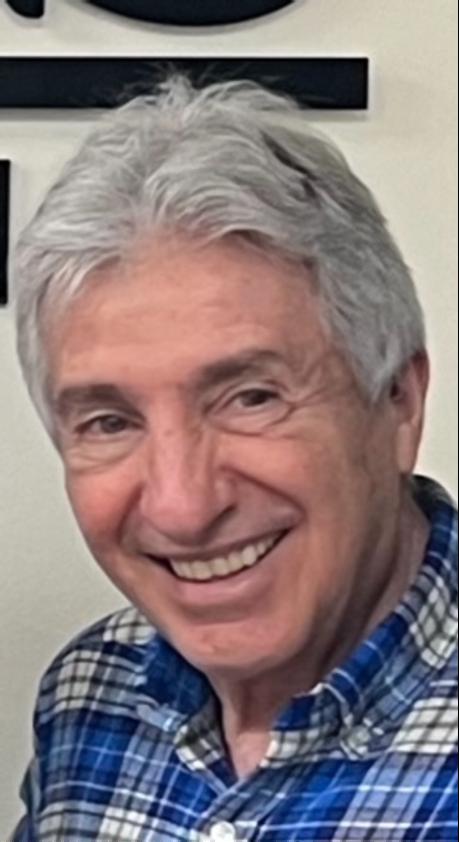
Ramzi Albert Rihani is a Lebanese American writer. He received the 2024 Polk Street Review first-place poetry award. His work has appeared in several publications in the US, Canada, UK, Ireland, China, and South Africa, including Arlington Literary Journal, Linnet’s Wings Magazine, The Galway Review, Poetic Sun, Chronogram magazine, Last Leaves Magazine, Cacti Fur Journal, Poetry Potion, Active Muse, Ephemeral Elegies, and The Silent Journey Anthology. He is a published music critic. He wrote and published a travel book, The Other Color - a Trip Around the World in Six Months (FMA Press). He lives in Potomac, Maryland.
Practice for a Recital
RussellRowland
The woman next door rehearses on her piano with windows open.
A Schubert etude tinkles out to instruct our songbirds in classical form.
I picture the clutter of mechanisms inside a baby grand wires, hammers, pedals, keys, who knows what and the pianist, imposing order according to a score by Schubert, long dead.
I wonder what birds think of it: what they’d make of something anything that has to be struck to make it sing.
Russell Rowland lives and writes from New Hampshire.
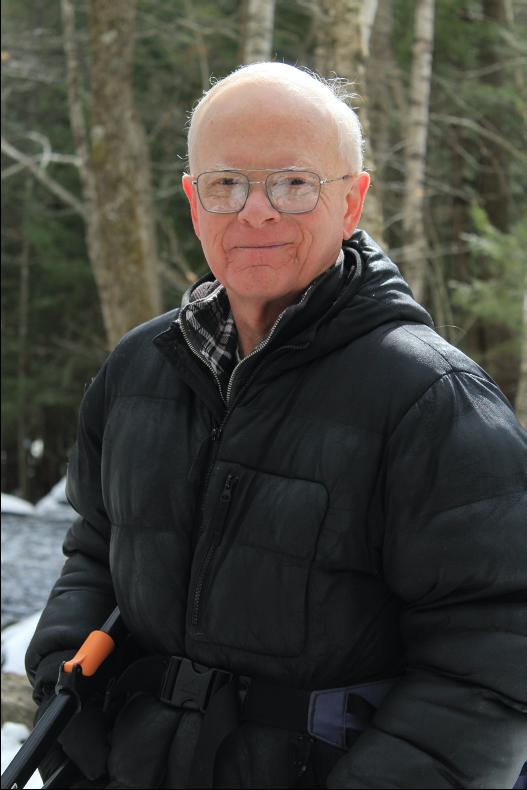
Gone Year
JamesFleetUnderwood
Packed neat and tight into a grocery bag of newspapers tied with string and left beneath the stairs a calendar from which someone’s erased an entire year’s worth of notes and appointments dates crossed out or circled smudged away with rubber –so that all I see if I stick my nose close to it is the ghost of pencil lines
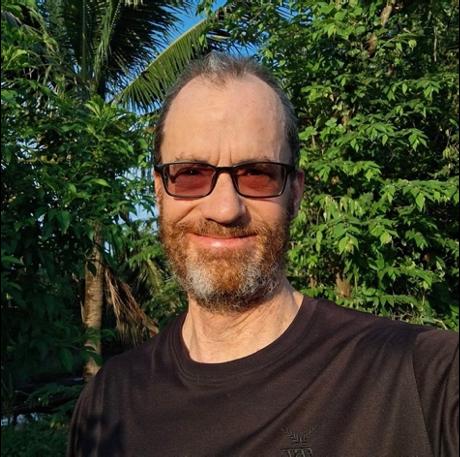
James Fleet Underwood lives and writes in Thailand but grew up in Michigan.
Review: Talking Back to the Exterminator by Daniel Bourne
ReviewedbyBarryHarris

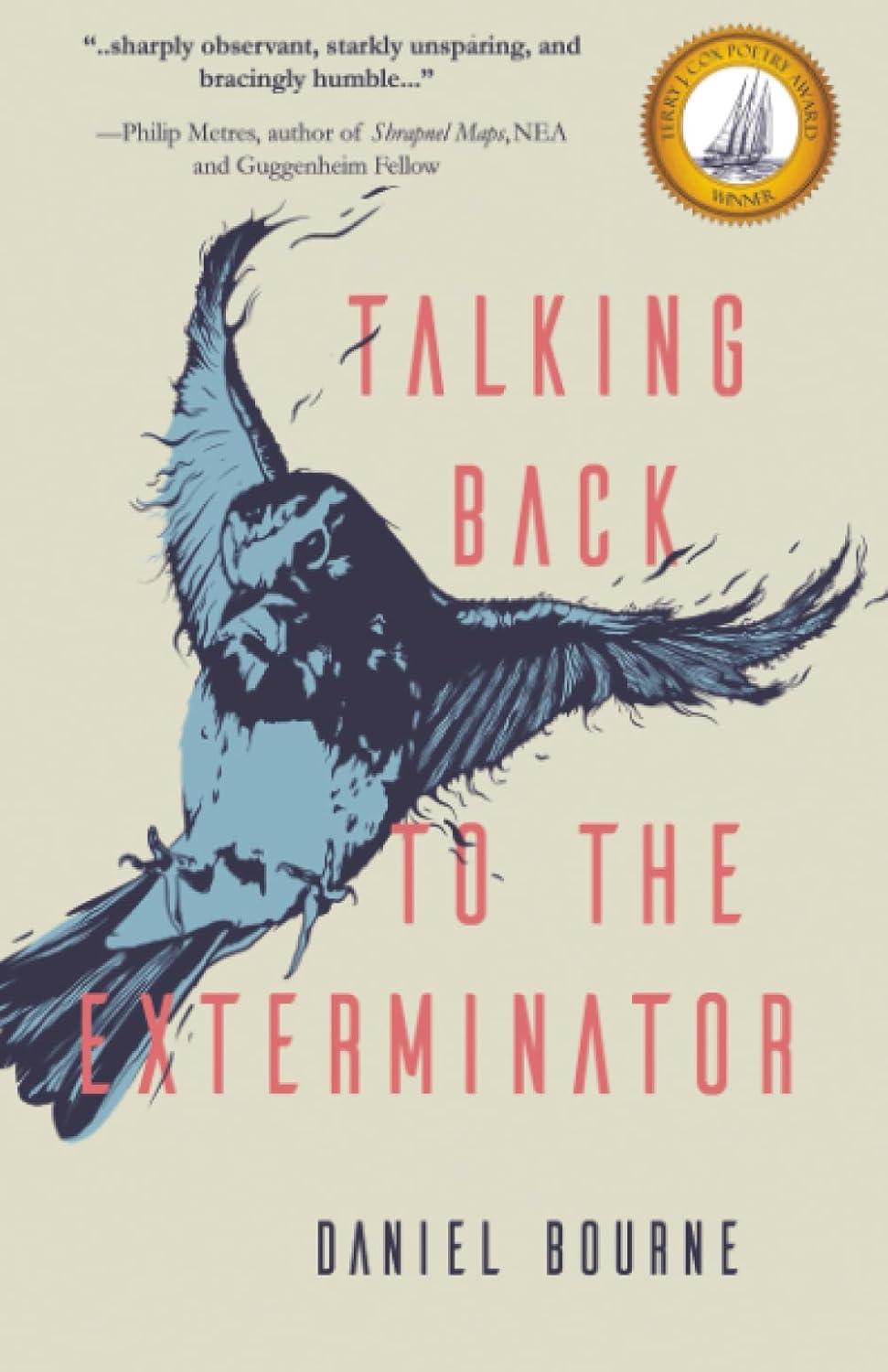
Title: Talking Back to the Exterminator
Author: Daniel Bourne
Year: 2024
Publisher: Regal House Publishing
Daniel Bourne’s Talking Back to the Exterminator presents a mix of place, memory and the natural world through a collection of poems that are both local and yet true in the wider world. Many poems reveal Bourne’s upbringing in southern Illinois as well as experiences in Ohio, Poland, and the American Southwest.
At the heart of Bourne's work is a sense of place, where the rural life is a presence often threatened by external forces and internal anxieties. We encounter animals, plants, and landscapes brimming with life yet shadowed ominously by the specter of violence and loss.
Tipton
In the title poem, "Talking Back to the Exterminator," we are warned from the first line:
We were warned. The queen could bury herself in the yard and the swarm of yellowjackets would return to our caves next year, their forays into the unseen parts of our soffit, a small hole in the wall bitten through, and soon there would be more avenues for their kind than rivers in North America
The first poem in the collection, "Close Neighbors" introduces us early to the shadows:
Meanwhile, the neighbor's small kid, liquored up with the chemicals he was born with, roars up our street and onto our porch, an oak branch in his hand. This is a gun, he says, and this is how I will kill you, and then he yells and runs off ... He lives on this street like we do. He pesters the bird nests in the tree in our yard. We should call his father to complain but the yelling coming from their windows is our yelling too.
Tipton
Bourne’s poetry resists sentimentality, instead offering a direct voice that confronts harsh realities without looking away. In "Ambush Predator" a brief encounter with a pit bull turns into a meditation on anxiety:
... Who knows what will kill us or let us alone...
... Who knows when we will eat or be eaten. If the next guest I let inside my door will be a hell-hound or my last friend on earth. No wonder that when the jaw opens it is so easy to hear the groaning hinge of the world.
His work acknowledges the inevitability of loss but also leans toward resilience and the possibility of imagining the world differently. In "Last Gestures," Bourne starts with this epigraph from Martin Luther: "If the world would end tomorrow, I would still plant my apple tree." After a discussion of Sylvia Plath's life, he imagines a possible final internal gesture:
Sylvia, did you stick a fork in to see if the carrots were soft before you turned off the burner and opened up that blessed oven door?
Personal histories intertwine with ecological narratives, creating a layered tapestry that invites readers to reflect on their own place within a wider continuum. In "Borges, Looking at his Shelves of Books," Bourne explores the lives of the famous blind. Beginning with the writer Borges who became blind in mid-life, Bourne sprinkles his poem with the traditionally blind Greek poet, Homer, and the historically blind poet, John Milton.
Tipton Poetry Journal
All this sets up the superb ending lines about Helen Keller:
...Even Helen Keller can't keep from laughing. She who from the start had the most sense of all. She who felt the water fall from the pump and said water. She who had found the perfect word to say.
The poet’s keen observation of details from velvet ants and juncos after thunderstorms to extinct species like passenger pigeons imbues the collection with a richness that celebrates the small wonders of life. His language captures the quiet magic of these moments.
Talking Back to the Exterminator is a book that speaks to the often fraught relationship between humanity and the earth, between memory and identity, and between loss and preservation. Daniel Bourne’s poems are a sobering yet hopeful reminder of the beauty and vulnerability of the world we inhabit.
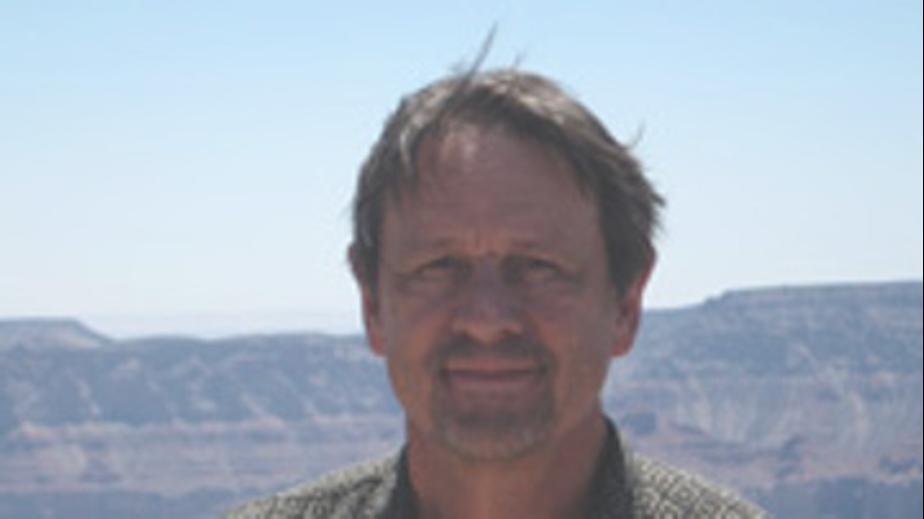
Daniel Bourne’s books of poetry include The Household Gods, Where No One Spoke the Language, and his latest, Talking Back to the Exterminator, the 2022 Terry L. Cox Poetry Award from Regal House Publishing. His poems have also appeared in Ploughshares, American Poetry Review, Field, Salmagundi, Guernica, Pleiades, Prairie Schooner, Yale Review, Shenandoah, Indiana Review, and elsewhere. He has also lived in Poland off and on since the Summer of 1980, including on a Fulbright Fellowship in 1985-87 for the translation of younger Polish poets and most recently in 2018 and 2019 for work on an anthology of Baltic Coast poets. A collection of his translations of Bronisław Maj, The Extinction of the Holy City, was published in 2024 by Parlor Press.
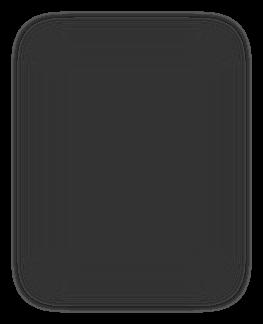
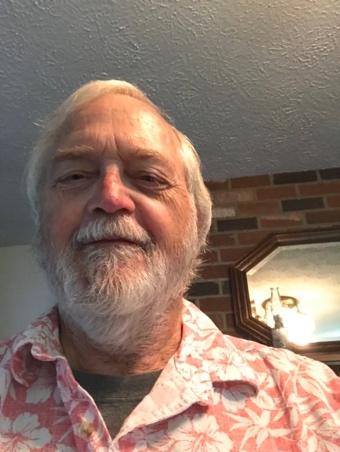
Barry Harris is editor of the Tipton Poetry Journal and several anthologies by Brick Street Poetry. He has published one poetry collection, Something At The Center. Married and father of two grown sons, Barry lives in Brownsburg, Indiana and is retired from Eli Lilly and Company.
His poetry has appeared in Kentucky Review, Valparaiso Poetry Review, Grey Sparrow, Silk Road Review, Saint Ann‘s Review, North Dakota Quarterly, Boston Literary Magazine, Night Train, Silver Birch Press, Flying Island, Awaken Consciousness, Writers‘ Bloc, RedHeaded Stepchild and Laureate: The Literary Journal of Arts for Lawrence.
He graduated a long time ago with a major in English from Ball State University.
Contributor Biographies
Ezzat Abouleish is a recent graduate from Yale College where he studied philosophy and political theory. He served as a poetry reader for the Yale Review and an editor for the Yale Philosophy Review. This is his first publication. The poem was developed under the mentorship of Louis Glück during her final workshop. He lives in Houston, Texas.
Ken Been’s writing has been published or is forthcoming in numerous journals internationally. Recent placements include The Brussels Review, The Primer, LIT Magazine, Slab, Kelp Journal (The Wave), The Opiate, Nova Literary-Arts Magazine and Aethlon. He has contributed to anthologies including Remembering Lawrence Ferlinghetti and Remembering Gerald Stern. He is from Detroit.
A lifelong New Englander, Jeff Bernstein would most have liked to have been, like Thoreau, “an inspector of snow-storms and rain-storms… [a] surveyor, if not of highways, then of forest paths and all across-lot routes.” He is the author of two chapbooks and two full-length collections; his most recent, The Ancient Ways, was published in 2024 by Aldrich Press and was nominated for the Vermont Book Award. His poem “A 21st Century Tanglewood Tale appeared in the 2025 Cold Lake Anthology. Other poems have recently appeared in, among other publications, Abandoned Mine, the MacGuffin, Nixes Mate Review, Trestle Ties and Sleet.
Heath Brougher lives in Pennsylvania and is the editor-in-chief of Concrete Mist Press and former poetry editor for Into the Void Magazine. His work has appeared in Main Street Rag, eFiction India, Poetry Pacific, Tipton Poetry Journal, Fredericksburg Literary and Arts Review, Red Fez, and elsewhere. He is a multiple Pushcart Prize and Best of the Net Nominee as well as recipient of Taj Mahal Review's 2018 Poet of the Year Award. His most recent book of poems, Beware the Bourgeois Doomsday Fantasy was published by Sandy Press in 2024.
Tipton Poetry Journal
Gail Epps sees poetry as a technical language between souls and another way to tell a story. Within a creative life that included careers as a chef, a headhunter and a rock singer; poetry is a natural toolkit for making images and plans for a kinder world. Gail lives in North Carolina. Her poetry is published in The Journal of Expressive Writing, Crosswalking, the annual Havik literary journal and upcoming editions of eMerge magazine, Amplify, a Sheila Na Gig anthology and the Journal of Undiscovered Poets.
George Freek is a poet/playwright living in Belvidere, Illionois. George Freek's poetry appears in numerous journals and reviews. His poem "Night Thoughts" was recently nominated for a Pushcart Prize. His poem "Enigmatic Variations" was also recently nominated for Best of the Net. His collection Melancholia is published by Red Wolf Editions. George Freek also published plays. His plays are published by Playscripts and Off The Wall Plays.
Linda Meg Frith is a retired Social Worker and long-time member of Green River Writers. She has published poetry in River and South, eMerge, Rainy Weather Days, Amethyst Review, Eclectica Magazine and other literary journals. Linda Meg currently lives with her Chihuahua, Jasmine, in Louisville, Kentucky.
Annette Gagliardi is a Minnesota poet whose work has appeared in literary journals in Canada, England and the US. Her first full-length poetry collection, A Short Supply of Viability, and her first historical fiction, titled: Ponderosa Pines: Days of the Deadwood Forest Fire were published in 2022. Her most recent chapbook, Caffeinated was published by The Island of Wak-Wak. See her author website: https://Annette-gagliardi.com
Michelle Hartman is the author of four poetry books, four chapbooks, the most recent a winner of the John and Miriam Morris Memorial Chapbook Contest. Her work has appeared in Crannog, Galway Review, Tipton Poetry Journal, The Atlanta Review, Penumbra, Poem, Southwestern American Review, Carve and many more. She is the former editor of Red River Review, as well as the owner of Hungry Buzzard Press. She lives in Texas.
Tipton Poetry Journal
William Heath has published four poetry books: The Walking Man, Steel Valley Elegy, Going Places, and Alms for Oblivion; three chapbooks: Night Moves in Ohio, Leaving Seville, and Inventing the Americas; three novels: The Children Bob Moses Led (winner of the Hackney Award), Devil Dancer, and Blacksnake's Path; a work of history, William Wells and the Struggle for the Old Northwest (winner of two Spur Awards and the Oliver Hazard Perry Award); and a collection of interviews, Conversations with Robert Stone. He received a Lifetime Achievement Award from Hiram College. He lives in Annapolis, Maryland. visit: www.williamheathbooks.com
Juan Ramón Jiménez (23 December 1881 – 29 May 1958) was a Spanish poet, a prolific writer who received the Nobel Prize in Literature in 1956 for his lyrical poetry, which in the Spanish language is exemplary of the precision of the image and a deep lyrical quality. One of Jiménez's most important contributions to modern poetry was his advocacy of the concept of "pure poetry." His poems often address divinity.
Michael Jones has taught in Oakland, California public schools since 1990. His poetry has appeared widely in journals, Atlanta Review, Beloit Poetry Journal, Confrontation, DMQ Review, etc., and in a chapbook, Moved (Kattywompus, 2016).
Richard L. Matta's poetry has appeared in MacQueen’s Quinterly, Stirring, Gyroscope, ONE ART, Watershed Review, international haiku journals, and elsewhere. He was recently nominated for a Pushcart and Touchstone Award, and is an award-winning short form poet. He lives in San Diego.
Mona Mehas (she/her) writes from the perspective of a retired disabled teacher in Indiana USA. She grew up poor and is unafraid to put her heart on the line. Nominated for a Pushcart (Paddler Press 2023) and Best New Poet (Lucky Jefferson 2024,) Mona’s work has appeared in multiple publications and online museums. She helps edit a small press, works with an online Star Trek magazine, and is Indiana Co-Leader for Authors Against Book Bans. Her latest book is the poetry collection, Breathing Through My Spine (Poptab Press, 2025.) Mona is editing her second novel and is perpetually distracted by her next chapbook
Tipton Poetry Journal
Cecil Morris is a retired high school English teacher living in California, sometime photographer, and casual walker. His first collection of poems, At Work in the Garden of Possibilities, came out from Main Street Rag in 2025. He has poems in The 2River View, Common Ground Review, Hole in the Head Review, New Verse News, Rust + Moth, The Sugar House Review, and elsewhere.
Ken Poyner lives in Norfolk, Virginia. This year he has published several pieces of microfiction and between twenty and thirty poems, three of which have been nominated for a Pushcart Prize.
Ramzi Albert Rihani is a Lebanese American writer. He received the 2024 Polk Street Review first-place poetry award. His work has appeared in several publications in the US, Canada, UK, Ireland, China, and South Africa, including Arlington Literary Journal, Linnet’s Wings Magazine, The Galway Review, Poetic Sun, Chronogram magazine, Last Leaves Magazine, Cacti Fur Journal, Poetry Potion, Active Muse, Ephemeral Elegies, and The Silent Journey Anthology. He is a published music critic. He wrote and published a travel book, The Other Color - a Trip Around the World in Six Months (FMA Press). He lives in Potomac, Maryland.
Timothy Robbins is from Indiana. He has a B.A. in French and an M.A. in applied linguistics from Indiana University and has been teaching English as a second language since 1991. He has been publishing poetry since 1980. He has a longstanding relationship with Hanging Loose and has published seven collections of poetry, the most recent being Florida and Other Waters and Sticks. He and his husband have been together since 1998. They live in Wisconsin.
Russell Rowland lives and writes from New Hampshire.
Mykyta Ryzhykh lives in Ukraine, has been nominated for the Pushcart Prize and has been published any times in the journals Dzvin, Dnipro, Bukovinian magazine, Polutona, Rechport, Topos, Articulation, Formaslov, Literature Factory, Literary Chernihiv, Tipton Poetry Journal, Stone Poetry Journal, Divot journal, dyst journal, Superpresent Magazine, Allegro Poetry Magazine, Alternate Route, Better Than Starbucks Poetry & Fiction Journal, Littoral Press, Book of Matches, on the portals Litсenter, Ice Floe Press and Soloneba, in the Ukrainian literary newspaper.
A native of Indiana, Katherine Simmons retired from the practice of law in New York and returned to the Hoosier state to live near the land and people she loved as a child. She now enjoys a variety of interests including poetry, nature, wild yeast bread-making, and the study of German. Katherine‘s poetry has been published inWayWords Literary Journal, Bud & Branch, Pure Slush – Lifespan Series, Still Points Arts Quarterly, Plum Tree Tavern, the Anglican Theological Review, Mayfly, And the Tail Wagged On, Me As a Child, Dis-Ordered, Flying Island, Through the Sycamores, As Above So Below, and Wine Cellar Press.
Brenna Sobecki is a current undergraduate student at Indiana State University who is pursuing an English major (Creative Writing concentration) with a minor in Language Studies (Spanish) and Teaching English as a Second Language. As a Northwest Hoosier native, Brenna enjoys hiking and spending free time at the Indiana Dunes.
Janice D. Soderling is a dislocated Hoosier who lives in Sweden. She is a previous contributor to Tipton Poetry Journal. Her work appears most recently at Eclectica, Mezzo Cammin, and Light Poetry Magazine. In 2025, Kultivera Production published two new Soderling collections: The Women Come and Go, Talking (poetry) and Our Lives Were Supposed to Be Different (short stories).
Jeanine Stevens’ latest publications are Left Handed Hummingbird (Clare Songbirds Publishing, 2025) and Tea in the Nuns’ Library (Eyewear Publishing, UK.) Work has appeared in Chiron Review, Evansville Review, Rosebud, So it Goes: Journal of the Kurt Vonnegut Memorial Library, and Two Thirds North (Sweden). Jeanine is Professor Emerita at American River College in Sacramento, California.
Christopher Stolle has been published by Indiana University Press, Cincinnati Symphony Orchestra, Coaches Choice, Tipton Poetry Journal, Flying Island, Last Stanza Poetry Journal, The Alembic, Sheepshead Review, and Plath Poetry Project, among others. He lives in Richmond, Indiana.
Tipton Poetry Journal
Translator Wally Swist’s forthcoming books include If You’re the Dreamer, I’m theDream: Selected Translations from Rilke’s Book of Hours (Finishing Line Press) and Aperture (Kelsay Books), poems regarding caregiving his wife through Alzheimer’s. Recent essays, poems, and translations have or will appear in Amethyst Review: New Writing Engaging with the Sacred, Chicago Quarterly Review, Commonweal, Full Bleed, Healing Muse, Illuminations, La Piccioletta Barca (U.K.), Pensive: Journal of Global Spirituality, Presence, and Your ImpossibleVoice. His book Huang Po and the Dimensions of Love (Southern Illinois University Press, 2012) was selected by Yusef Komunyakaa for the 2011 Crab Orchard Open Poetry Competition. He lives in Massachusetts.
Jim Tilley lives in New York State and has published four full-length collections of poetry and a novel with Red Hen Press. His short memoir, The Elegant Solution, was published as a Ploughshares Solo. His poem, On the Art of Patience, was selected by Billy Collins to win Sycamore Review’s Wabash Prize for Poetry. Five of his poems have been nominated for a Pushcart Prize. Ripples in the Fabric of the Universe: New & Selected Poems was published in 2024. His forthcoming collection, When Godot Arrived, will be published in the Fall of 2026.
David Tobin lives in the Indianapolis area, is relatively new to poetry and enjoys writing about nature and merging the theme of nature with themes of life and love.
James Fleet Underwood lives and writes in Thailand but grew up in Michigan.
Sarah Elena Smart Vargas is an English major with a focus on creative writing at Southern New Hampshire University. She currently works with middle school ESL (English as a Second Language) students in a small town outside San Antonio, Texas. She lives with her fiancé and her dog .
Yuliia Vereta lives in Poland and has published in multiple Polish and American venues.
Xiao Wenyi is a bilingual poet and yoga instructor. She is currently a graduate student in English Literature at Beijing Foreign Studies University. Her areas of interest are modernist poetry and 20th century women poetry.
Tipton
Anne Whitehouse lives in New York City and is the author of poetry c ollections: The Surveyor’s Hand, Blessings and Curses, The Refrain, Meteor Shower, Outside from the Inside, and Steady, as well as the art chapbooks, Surrealist Muse (about Leonora Carrington), Escaping Lee Miller, Frida, and Being Ruth Asawa. Her latest chapbook, Adrienne Fidelin Restored , was published this year. She is the author of a novel, Fall Love. Her poem, “Lady Bird,” won the Nathan Perry DAR 2023 “Honoring American History” poetry contest. She has lectured about Longfellow and Poe at the Wadsworth Longfellow House in Portland, Maine, and Longfellow House Washington Headquarters in Cambridge
Alessio Zanelli is an Italian poet who writes in English. His work has appeared in about 250 literary journals from 20 countries. His sixth collection, titled The Invisible, was published in 2024 by Greenwich Exchange (London). For more information please visit www.alessiozanelli.it.
Editor
Barry Harris is editor of the Tipton Poetry Journal and several anthologies by Brick Street Poetry. He has published one poetry collection, Something At The Center.
Married and father of two grown sons, Barry lives in Brownsburg, Indiana and is retired from Eli Lilly and Company.

His poetry has appeared in Kentucky Review, Valparaiso Poetry Review, Grey Sparrow, Silk Road Review, Saint Ann‘s Review, North Dakota Quarterly, Boston Literary Magazine, Night Train, Silver Birch Press, Flying Island, Awaken Consciousness, Writers’ Bloc, Red-Headed Stepchild and Laureate: The Literary Journal of Arts for Lawrence. One of his poems was on display at the National Museum of Sport and another is painted on a barn in Boone County, Indiana as part of Brick Street Poetry‘s Word Hunger public art project. His poems are also included in these anthologies: From the Edge of the Prairie; Motif 3: All the Livelong Day; and Twin Muses: Art and Poetry.
He graduated a long time ago with a major in English from Ball State University.
